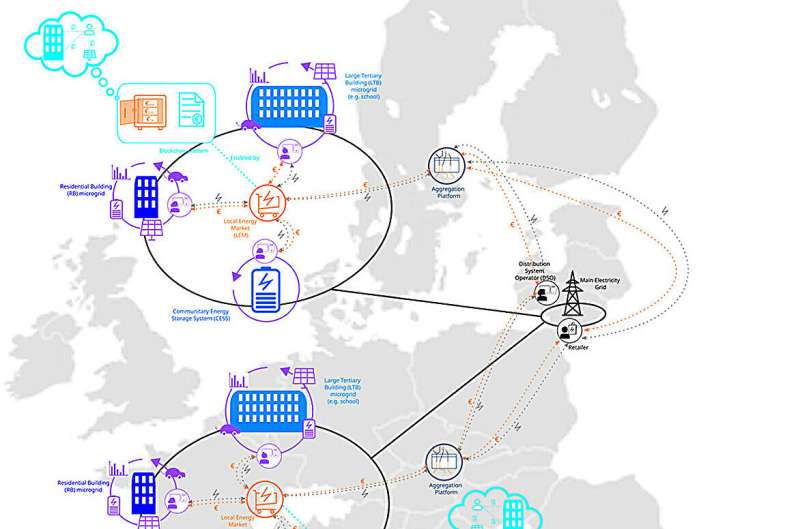
A study published in Renewable and Sustainable Energy Reviews by the University of the Basque Country (UPV/EHU) shows that the number of community projects that produce and use their own power varies greatly from one European country to another
The UPV/EHU researcher Iraide López and the Ph.D. student Nerea Goitia explored energy communities in the European Union. The analysis concluded that the main difficulty hampering their development is the lack of specification in the regulations. In addition, the study showed that the degree of progress of this new setup that has emerged to generate and use its own power varies greatly from one state to another.
Within the framework of the ecological transition, the European Union is promoting the creation of energy communities. Through its directives, it has promoted this setup that empowers citizens to stop being a passive player in the electricity value chain.
The function of the population is no longer limited to consuming and paying: the law allows a group of people to establish a legal entity for the purpose of generating their own energy. And not only to consume it themselves, but also to sell off the surplus.
The UPV/EHU's Elektriker research group analyzed the situation in which energy communities in various EU states find themselves. The author of the study López indicated that "these communities are going to play an important role in the decarbonization process. However, the setup is still in its infancy and many aspects remain to be developed. We set out to find out more about the circumstances in which they find themselves in various places, with a view to contributing to their progress."
Firstly, they analyzed the aspects that influence the development of energy communities and saw that the main obstacle is legislation. Although the difficulty in obtaining funding, the scarcity of economic incentives, the complexity of the administrative processes and the lack of time and motivation of the population also discourage their creation, the greatest obstacle is the lack of precision in the regulations of each state.
Lopez explained that "in general, the regulations are not sufficiently detailed. The rights and obligations of this new setup need to be better specified so that it can really become part of the system. For example, the number of members that can make up an energy community; whether there should be geographical limits between them; whether the setup of virtual plants where users do not even have to share the same country, etc., is accepted."
She also pointed out that the lack of precision in the legislation also has a negative impact on the trust the general public have regarding energy communities, thereby slowing down their development.
Secondly, the UPV/EHU study showed that the degree of detail in the legislation is very disparate between the countries of the European Union. This, together with the energy and economic factors in each state, means that the degree of development of energy communities varies greatly from one place to another. An example of this is the number of registered initiatives: Germany stands out with 1,750 projects, followed by Denmark with 700 and the Netherlands with 500, and Spain, with 33, is in ninth place in the ranking.
More information: Iraide López et al, European energy communities: Characteristics, trends, business models and legal framework, Renewable and Sustainable Energy Reviews (2024). DOI: 10.1016/j.rser.2024.114403
Citation: Researchers identify legislation as the main obstacle to the development of energy communities (2024, June 14) retrieved 14 June 2024 from https://techxplore.com/news/2024-06-legislation-main-obstacle-energy-communities.html
This document is subject to copyright. Apart from any fair dealing for the purpose of private study or research, no part may be reproduced without the written permission. The content is provided for information purposes only.
